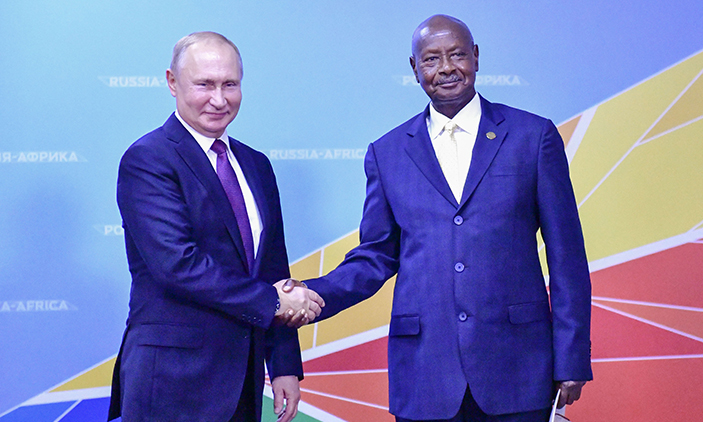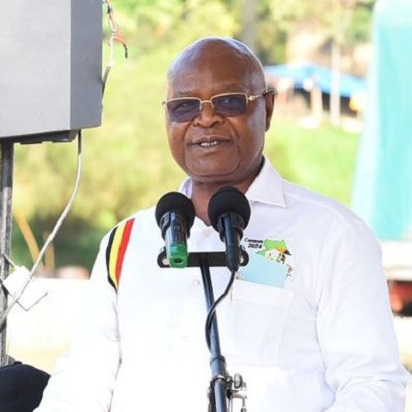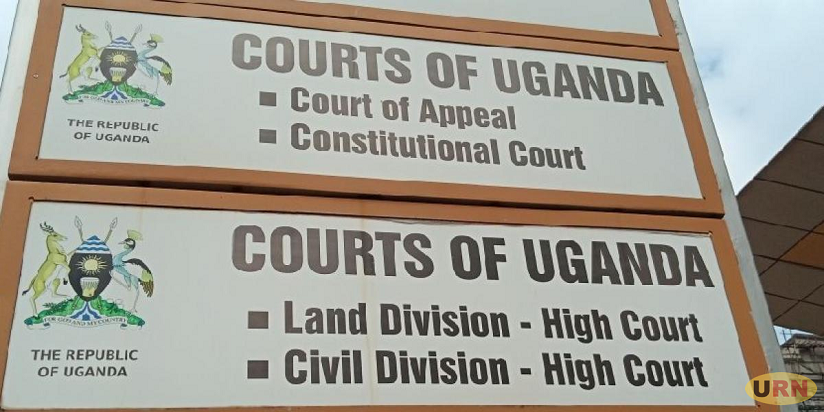By Alex Masereka Joel
The chaos in China’s Hong Kong region continues to divide opinion across the world is now being used as a litmus test of sorts for countries’ relations with Beijing.
Mid this week, US President Donald Trump, signed into law congressional legislation backing protesters in Hong Kong who have been on the streets for five months now.
The legislation, approved unanimously by the Senate – the US’s upper house – and by all but one member of the House of Representatives – the lower house – last week, requires Hong Kong’s special trade status with the US to be reviewed annually by the State Department, and also threatens sanctions for human rights violations.

Congress passed a second bill, which Trump also signed, banning the export to the Hong Kong police of crowd-control munitions, such as tear gas, pepper spray, rubber-coated bullets and stun guns.
KAMPALA STAND ON HONG KONG
Despite the silence of most nations on the status of Hong Kong, in October, Uganda became one of the few countries to express solidarity with China on the Hong Kong protests that continue to threaten the province’s economy.
“Uganda firmly supports the One country, two systems policy of the people’s The Republic of China on the matter of Hong Kong and other areas,” the statement said.
It added, “Hong Kong is part of China. Hong Kong’s affairs are China’s domestic affairs.”
Protesters have been on the streets of the territory since June, angered first by a proposed extradition bill that would have allowed people to be sent to China for trial. That bill has now been dropped, but the protests have evolved into wider calls for China to stand by commitments made to allow Hong Kong a “high degree of autonomy” when it regained sovereignty over the city in 1997.
That pledge, known as “one country, two systems”, was meant to last 50 years and is the basis of the self-governing Chinese territory’s special status under US law. Protesters say freedoms have steadily eroded.
Trump’s bill and Uganda’s stand have laid bare the disagreements between Washington and Kampala on Hong Kong which the US considers vital in its protracted economic war with China. It also says a lot about the relations between Uganda and the US going forward.
UGANDA – US RELATIONS
Uganda’s stance on the issue and Trump’s actions, have exposed cracks in the relations between Kampala and Washington.
The two nations have enjoyed good relations since Museveni took over power in 1986.
Washington has been key in supporting Kampala, providing aid to the East African nation’s military and other sectors of the economy.
In return, Museveni joined the global fight against terror, deploying troops in Somalia, troops that have helped to keep Al Shabab terrorists at bay and restore a semblance of peace in the horn of Africa nation.
Outgoing US ambassador to Uganda, Deborah Malac’s perceived close ties with new political sensation, Kyadondo East lawmaker, Robert Kyagulanyi aka Bobi Wine, has not made things any better.
Political strategists in the ruling National Resistance Movement (NRM) party believe she has been key in securing Bobi Wine his much acclaimed international contacts.
It is the reason why news of the end of her tour of duty, was met with ‘celebrations’ among supporters of the NRM.
UGANDA LOOKS EAST
However, in recent years, the relations between the two have been a bit frosty, with Museveni slowly drifting away from the west and embracing eastern powers in China and Russia, the US’ erstwhile frenemies.
Relations between Uganda and the People’s Republic of China were established in 1962. Trade between the two nations totaled over $1 billion in 2017.

China is now the leading source of Foreign Direct Investments (FDIs) in Uganda with a host of Chinese companies scooping contracts to help Uganda on her infrastructural development.
In a sign of increased strong ties between Kampala and Beijing, China’s leader Xi Jinping hosted Museveni in the giant Asian nation in June. Museveni was there on a four-day visit at the invitation on President Xi.
Those in the know of diplomatic maneuvers believe these gestures are a sign on increased ties between the nations.
It is not surprising that in the following months after the visit, we witnessed unprecedented gestures like Xi sending Museveni a birthday message, Uganda state owned newspaper having a picture of China’s military parade as the country celebrated her 70th anniversary.
This was in addition to the statement on Hong Kong and increased exchanges between the two nations.
ENTER RUSSIA
The Soviet Union established diplomatic relations with Uganda on October 11–12, 1962.
In September, Russia signed a contract with Uganda that will see the East African nation develop its uranium deposits into nuclear power for “peaceful purposes”, mainly electricity generation and medicine (cancer treatment).
Energy minister Irene Muloni signed an inter-government agreement (IGA) with Mr Nikolai Spasskiy, the deputy director general of Russia’s nuclear energy agency, Rosatom, in the Austrian capital Vienna, on the sidelines of the 63rd Session of the International Atomic Energy Agency General Conference.
The Uganda government and Rosatom signed a memorandum of understanding (MoU) on the same earlier in 2017 to kick-start the relationship.

Museveni was part of the African leaders who travelled to Sochi, Russia for the first Africa – Russia summit hosted by President Vladimir Putin.
During his talks with Putin, Museveni praised Moscow’s military hardware. Russia supplied Uganda Sukhoi Jets.
He also asked the Russian leaders to relax conditions in the purchase of the same so that the two nations can do good business in the future.
Uganda is set to benefit from Russian support as the East African nation seeks to launch her first satellite into space by 2022.
These are developments the people in Washington are not taking lightly and possibly explains why they have given Museveni’s political nemesis, Bobi almost unlimited access to galvanize support for his political ambitions in the US.
It waits to be seen how Museveni who is set to contest again in the 2021 general elections, will walk this tight rope of balancing his relations with both east and western powers. Will the allow Museveni carte blanche access to the east or fight to win him over! Its a question that will be answered in the near future.
Email: maserekaalex4@gmail.com
WhatsApp: +256774552385





